
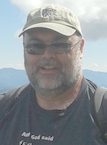
Jason Link
National Marine Fisheries Service (NMFS), NOAA, USA
Session 1
Jason Link is the Senior Scientist for Ecosystems with the National Oceanic and Atmospheric Administration’s National Marine Fisheries Service, leading efforts to support development of ecosystem-based management plans and activities throughout the agency. Link has been a champion of ecosystem science and management for resource management agencies in the U.S. and around the world, sitting on several international advisory boards and the editorial board of an international marine science journal. He has held many past adjunct positions and currently holds an adjunct faculty position at the School for Marine Science and Technology at the University of Massachusetts. His research interests include marine resource-ecosystem modeling methodologies, marine food web topology, globally consistent patterns in ecosystem cumulative biomass distributions, and delineation of ecosystem overfishing thresholds. Link has written several books and book chapters on Ecosystem-based Fisheries Management, over 220 peer-reviewed publications, over 300 reports, over 325 published abstracts, and has convened over 10 major international symposia and summits on marine ecosystem management and modeling-related topics. Link is a fellow of the American Institute of Fishery Research Biologists, was a Frohlich Fellow, holds executive leadership certificates from the Harvard Kennedy School and the Key Program at American University, and has received the Fisheries Society of the British Isles Medal for significant advances in fisheries science and a Department of Commerce Bronze medal. Link received his B.S. in biology from Central Michigan University and a Ph.D. in biological sciences from Michigan Technological University.
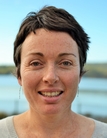
Emily Ogier
Institute for Marine and Antarctic Studies (IMAS), University of Tasmania, Tasmania, Australia
Session 2
Emily Ogier is a marine social science researcher at the Institute for Marine and Antarctic Studies, University of Tasmania, Australia, where she leads the human dimension research team. Here she undertakes a mix of socio-economic and socio-ecological research and assessment projects with local and national management agencies; and on invitation from Indigenous, industry and community organisations. These projects involve identifying knowledge needs and developing assessment frameworks and other tools to support policy formulation, institutional design and for ongoing management of marine systems and sectors (including fisheries, aquaculture, offshore energy, conservation and restoration, and for Sea Country). Her interest in science-policy comes to the fore in her role as leader of national Human Dimensions Research Coordination Program for the Fisheries Research and Development Corporation. Through her involvement in the Centre for Marine Socioecology, Emily contributes to a range of interdisciplinary projects concerned with both extending knowledge and how knowledge is produced. She is a working group member of the Science for Nature and People Partnership (SNAPP) team, How can improved marine governance guide more responsible, equitable, and effective interventions in climate-impacted oceans?
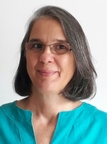
Cristiana Simão Seixas
Environmental Studies and Research Center (NEPAM), Brazil
Session 3
Cristiana Simão Seixas is a senior researcher at the Environmental Studies and Research Centre (NEPAM), University at Campinas (UNICAMP), in Brazil. Her research interests include environmental governance, integrated community-based conservation and local development, indigenous and traditional ecological knowledge, ecosystem services/nature’s contributions to people, social-ecological resilience, transformative change, and transdisciplinary approaches. She has contributed to the Intergovernmental Platform on Biodiversity and Ecosystem Services (IPBES) in several assessments, including co-chairing the IPBES Regional Assessment for the Americas (2015-2018). She has also served the Brazilian Platform on Biodiversity and Ecosystem Services (BPBES) in diverse roles, including Co-chairing the 1st Brazilian Marine-Coastal Assessment on Biodiversity and Ecosystem Services (2020-2023). Cristiana Seixas is an elected member of the São Paulo Academy of Science (ACIESP) and part of the Community Conservation Research Network (CCRN) since its beginning.
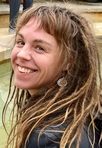
Jess Melbourne-Thomas
CSIRO Environment, Australia
Session 4
Jess Melbourne-Thomas is a Transdisciplinary Researcher and Knowledge Broker, and leads a marine socio-ecological systems team in the Sustainable Marine Futures Program with CSIRO Environment. Jess' background is in mathematical modelling and Antarctic climate change science, and in her current role is helping to connect research to decision-making for sustainability and climate change adaptation. Jess was one of Australia’s first 30 Superstars of STEM and was named Tasmania’s Young Tall Poppy of the Year in 2015 for her excellence in research, science communication and policy engagement. She co-founded the Homeward Bound project, which took the largest ever all female expedition on a leadership journey to Antarctica in 2016, and was a Lead Author for the Intergovernmental Panel on Climate Change (IPCC) 2019 Special Report on the Oceans & Cryosphere in a Changing Climate. She was also one of 12 female scientists globally to have her portrait featured as a constellation on the ceiling of New York’s Grand Central Station as part of GE’s 2017 Balance the Equation campaign. Jess was the 2020 Tasmanian Australian of the Year.
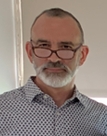
Kevin St. Martin
Rutgers University, USA
Session 5
Kevin St. Martin is a Professor of Geography at Rutgers, the State University of New Jersey, USA. He is a human geographer whose work is at the intersection of economic geography, political ecology, and critical cartographies. His work includes critical analyses of economic and resource management discourse as well as participatory projects that work to rethink economy and foster economic and environmental wellbeing. Dr. St. Martin’s projects have in common the regulation and transformation of the marine environment. He uses the paradigmatic case of fisheries in the U.S. Northeast to better understand the power of discourse, data, and devices to shape economic and environmental outcomes. He co-edited Making Other Worlds Possible: Performing Diverse Economies, he is an editor of the Diverse Economies and Liveable Worlds book series, he is an associate editor for the journal Maritime Studies, and he serves on the advisory board of the Floating Laboratory of Action and Theory at Sea (FLOATS).

Ling Cao
Xiamen University, China
Session 6
Ling Cao currently serves as a professor in the College of Ocean and Earth Sciences at Xiamen University. She completed her Ph.D. in Natural Resources and Environment at the University of Michigan, Ann Arbor and worked at Stanford University as a research scientist. Growing up on a family fish farm in China and trained as an agronomist and environmental scientist, Ling has focused on interdisciplinary research at the interface between marine conservation and sustainable fisheries and aquaculture management. She has published extensively in high-profile journals such as Nature, Science, and Proceedings of National Academy of Science. She is a Pew Marine Fellow.
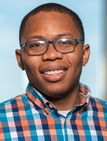
Eric Wade
East Carolina University, USA
Session 7
Dr. Eric Wade is an assistant professor of environmental social science at East Carolina University and an assistant research scientist at the Coastal Studies Institute. His primary expertise is studying human-environment interactions within coastal and marine systems. Specifically, his research focuses on understanding the non-monetary factors influencing individual and collective decision-making in response to socio-ecological changes.
Furthermore, Dr. Wade's work examines how formal and informal institutions influence stakeholders' behaviors and decisions within coastal and marine environments. His research areas include fisheries governance and management, marine spatial planning, and the social dimensions of marine renewable energy. His research is primarily based in the Wider-Caribbean region and North Carolina (USA). Dr. Wade is committed to conducting research that generates actionable science, contributing not only to theoretical knowledge but also to the development and well-being of local communities.
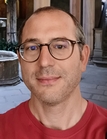
Chris Lynam
Centre for Environment, Fisheries and Aquaculture Science (Cefas)
Session 8
Chris Lynam is a scientist at the Centre for Environment, Fisheries and Aquaculture Science (Cefas).
As a biodiversity and food webs adviser to government he supports the implementation of the UK Marine Strategy through evidence provision.
His interest lies in understanding how fisheries and other human impacts might be best managed given the direct and indirect responses of species and ecosystems in a changing climate. His research aims to take an integrative approach and has included monitoring and modelling changes in primary production, zooplankton, fish, elasmobranchs and food webs in relation to changing environmental conditions, habitats, fishing pressure and the presence of man-made structures in the marine environment.
Chris contributes to numerous international working groups including the "Intersessional Correspondence Group on the Coordination of Biodiversity Assessment and Monitoring" for The Convention for the Protection of the Marine Environment of the North-East Atlantic (OSPAR).

Aoi Sugimoto
Japan Fisheries Research and Education Agency(FRA)
Session 9
Dr. Aoi Sugimoto is a marine social scientist and an activist who explores the healthy and happy interrelationships among people, ocean, and local communities. Aoi started her academic career as a qualitative social scientist which has gained several Awards in/outside of Japan. Recently she has been expanding the scope of her work wider than traditional scientific research, with the sense that the collaboration with diverse actors including artists, private companies, local Govs will expand the existing framework of marine science and enrich intellectual creation around the ocean. Her talk will introduce some of the latest projects which she has been engaged with, through that she welcomes participants to witness or even join this "creation" together.
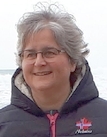
Nathalie Niquil
French National Center for Scientific Research (CNRS), The University of Caen, France
Session 10
Nathalie Niquil is a researcher in numerical ecology at the French CNRS (National Center for Scientific Research) in Caen, Normandy, France, since 2012. Prior to this, she was an assistant professor in the University of La Rochelle for 13 years. She is a member of the BOREA laboratory (Biology of Aquatic Organisms and Ecosystems) where she leads a team called ECOFUNC (Functional ecology of marine ecosystems and social-ecosystems) and a transversal axis focusing on the effects of Global Changes from cells to ecosystems. From 2011 to 2016, she was involved in the "Marine Strategy Framework Directive, Food webs descriptor" group, working on good ecological status and the development of indicators. She participated in the creation and became leader, during the same period, of the OSPAR Convention expert group on food webs. Her research focuses on characterizing and modeling the functional properties of networks in coastal ecosystems and social-ecological systems. With her team, she has recently developed an ecosystem approach to offshore wind farms and worked on the cumulative impacts of different local pressures and the effects of climate change. She also works with colleagues in mathematics and computer science on the methodological development of numerical tools (linear inverse modeling - Monte Carlo Markov chain, ecological network analysis), with a particular interest in quantifying uncertainty. She is also involved in various interdisciplinary studies ranging from the modeling of socio-ecological systems with oriented di-graphs to the study of attachment values of Normans to the Seine Bay ecosystem. She is particularly interested in using the results of food web models to help decision-making in coastal zone management.
- Conference Baquet Dinner Survey. Dinner is included into the registration fee payment.
- Special Event “Art for Mother Ocean” – Post-conference Excursion (June 8). Number of seats are limited.Questions? Ask event coordinators.
- Manuscript submission for publication
- Early Registration
- Abstract Submission
- Financial Support Application
- Abstract Submission
- Financial Support Application



